
b-qual news december 2024
15 min readDecember News
As 2024 draws to a close, we’re buzzing with gratitude for an incredible year of growth, learning, and collaboration. This year, we’ve witnessed the power of community in action—whether it was sharing information about pollinator-friendly gardens, protecting vital habitats, or simply spreading awareness about the importance of our precious bees.
Looking forward to 2025, we’re excited to build on these efforts with renewed energy. There’s so much to look forward to—new initiatives to support pollinators, more ways to get involved, and plenty of opportunities to make a difference for bees and the ecosystems they sustain.
This holiday season, let’s take inspiration from the bees: work together, share sweetness, and rest when needed. Thank you for being part of this hive of change. Your dedication ensures a brighter, more sustainable future for all of us.
Wishing you a joyful Christmas and a prosperous New Year
Self-Assessments
If you have purchased the Approved Supplier Manual at any time in the past and not yet completed the self-assessments it is a requirement of the program to do so.
You may be paying the annual subscription but not getting the full benefit from B-QUAL as you could be, by not progressing through the certification stage to achieve full accreditation.
If you require further assistance with the self-assessments contact admin@bqual.com.au
Until a member has completed self-assessments the B-QUAL logo cannot be used in any advertising or packaging.
Membership Fees
Membership of B-QUAL commences when you purchase the B-QUAL Approved Supplier Manual, after completing the required application information. An annual subscription fee invoice is issued separately at the time or shortly after you purchase your Supplier Manual.
Thereafter, each September renewal invoices will be sent out. Members must pay the annual membership fee to remain active and certified.
Audits
Understanding the current pressures on business B-QUAL is constantly looking to reduce costs to our members. We have held membership fees at the same level over the last few years.
To further assist members, we have introduced Remote Audits the audit cost is stable at current rates but there are no other miscellaneous costs such as travel, accommodation etc.
To qualify for a remote audit, you must have had a previous site audit and have no outstanding CARs. If your last audit was a site audit, when confirming your next audit ask for a remote audit.
B-QUAL’S First Life Membership
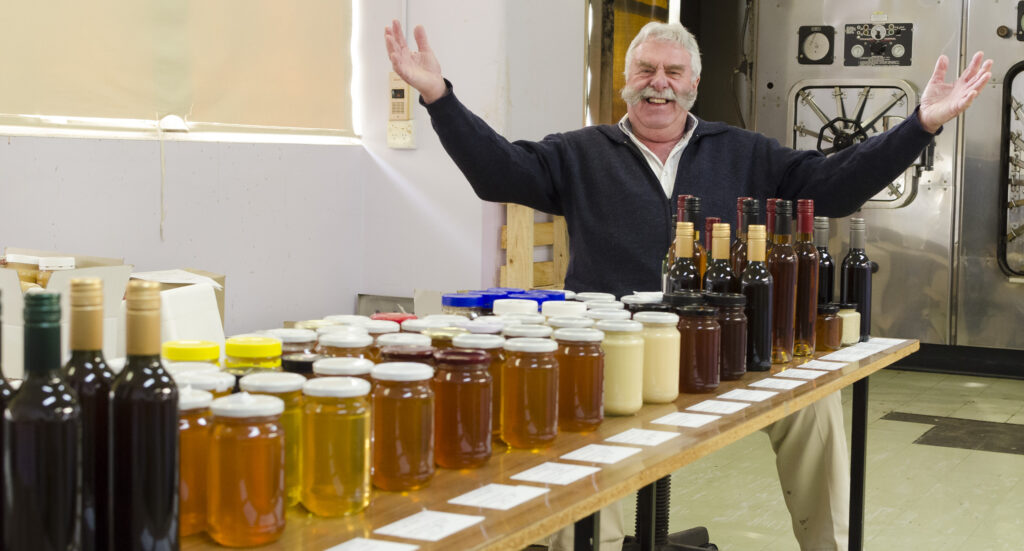
LINDSAY BOURKE
The B-QUAL board is pleased to announce that it has awarded a life membership to Lindsay Bourke of Launceston Tasmania.
Lindsay has been a driving force in the industry in promoting B-QUAL and Biosecurity and better handling practices within the apiculture industry over many years.
Lindsay has served as a Board Director of B-QUAL in his capacity of AHBIC Chairman on 2 occasions for a number of years.
A full resume of Lindsay’s achievements will be published in the next newsletter
Beekeeper update December 2024.
Permit System Amendments
In line with the National Transition to Management plan to slow the spread of Varroa mite, the Victorian Control Area Order in relation to Varroosis remains in place, and permits are still required for the movement of bees, hives, and queen bees into Victoria from states and territories where Varroa mite is present.
Permits continue to be assessed on a case-by-case basis and require applicants to provide sufficient evidence of Varroa freedom for the consignment.
Other apiary products from Varroa-infested states or territories including honey, wax and used equipment no longer require a permit but do require a movement notification.
Permits for movements from Varroa free states or territories are no longer required. The movement of bees, hives, and queen bees from Varroa-free states and territories does however require a movement notification.
Full details of the new movement requirements, including information required for the new movement notifications, can be found on the Agriculture Victoria Beekeeper Permits page.
Agriculture Victoria thanks all beekeepers for their continued awareness, cooperation, and compliance with movement and traceability controls as we continue to attempt slowing the spread of Varroa into the state.
Victorian Varroa Map
We encourage all beekeepers to continue vigilantly monitoring their hives for Varroa and reporting results through BeeMAX.
Deidentified test results are now being visually mapped and can be viewed on the Victorian Varroa map located on the BeeMAX public reports page.
The map is designed to be a management and decision-making tool for beekeepers. By tracking Varroa as it inevitably spreads across the state, beekeepers will be able to see when to increase their Varroa monitoring frequency, allowing them to make timely management decisions or seek support from the Varroa Development Officers.
Widespread good Varroa management practices will benefit us all, and early detection in each new region gives beekeepers the best chance to put good management practices in place and minimise hive losses.
Help us work together to make the transition to living with Varroa as smooth as possible.
Varroa Treatments
The Australian Pesticide and Veterinary Medicines Authority (APVMA) has issued new permits for legal use of Varroa mite treatments in Victoria. It has also recently approved a new oxalic acid dihydrate product, Api-Bioxal.
- Api-Bioxal Solution and Api-Bioxal Powder (Permit Number PER94609)
- Apiguard Gel For Beehives (Permit Number PER94655) / (Registered Product Number: 65570)
- Apistan (Permit Number PER95038)
- Apitraz (Permit Number – PER94153)
- Apivar (Permit Number PER94153) / (Registered Product Number- 88615)
- Bayvarol Strips (Permit Number PER95037)
- Formic Pro (Permit Number PER95344)
Importantly, no changes have been made to how these products must be applied, and all use must occur strictly in adherence to the respective permits and label instructions.
Varroa treatments should only be undertaken when Varroa mite in-hive thresholds are exceeded, and treatments must be rotated. This will minimise miticide resistance and should be part of your integrated pest management (IPM) strategy.
The National Varroa Mite training workshops have a strong focus on IPM and how chemical (both organic and synthetic-based) treatments fit into a control strategy.
The AHBIC website has some useful information on miticide use for your reference.
Chemical Residue Testing of Honey and Wax
As new chemical use practices are needed in beekeeping, risks to beekeepers and consumers increase. This may be due to poor practices or intentional misuse. Agriculture Victoria conducts an annual Targeted AgChem Residue Program, testing produce for chemical residues against maximum residue limits (MRL).
This program helps to understand if agricultural and veterinary chemical products are being used appropriately. Samples of honey and/or wax may be collected for testing directly from beekeepers, farmers markets, direct honey/wax suppliers or honey packers.
Detections above the MRLs are considered unacceptable under Victorian laws. Unacceptable residues are not a direct indication that produce is unsafe to consume. MRLs have human health safety margins built into them. MRL breaches can indicate poor chemical use practices.
When unacceptable residues are found, Agriculture Victoria conducts a traceback investigation to identify the cause of the residue and then implements the most appropriate regulatory outcome.

New Website Launched
The National Varroa Mite Management Program has launched a new national website.
Find information on training, monitoring, reporting and varroa management, along with contacts on where to get help.
Victorian Varroa Development Officer Update
The team have enjoyed a very busy month, out and about meeting lots of beekeepers at clubs, field days and hands-on events where they have been leading practical discussions about how to keep bees happy and healthy, and the realistic changes you can make in your apiary now to prepare for Varroa.
The VDOs would like to thank the following clubs for their support and proactive engagement for their members, we look forward to visiting many of you again:
- Ballarat Regional Beekeepers
- Probus Bannockburn
- Apollo Bay Landcare
- North Western Bee Club Inc
- Ceres Community Environment Park
- Woodend Bee Friendly Society
- Werribeeks Inc.
- Gippsland Apiarists Association Inc.
If you would like a Varroa Development Officer to attend your bee club meeting, field day or event, or if you have any other Varroa mite-related questions please get in contact with the Varroa Development Officers via:
- email Victorian.VDO@agriculture.vic.gov.au or
- call 1800 958 485
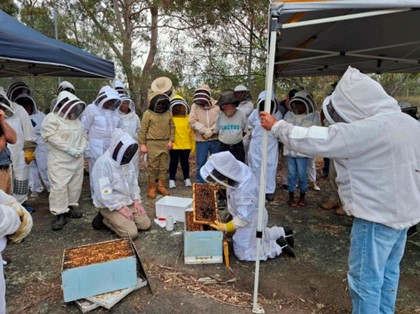
Image: Participants at the Gippsland Field Day in Bengworden.
National Varroa Mite Management Training Program Update
The VDOs have continued to support the delivery of the National Varroa Mite Management Training Workshops, attending all thirteen completed to date.
The final workshop of the National Varroa Mite Management Training Program in Victoria for the year will be held at:
Warragul
Saturday, 7 December
Warragul Country Club
The National Varroa Mite Management Training Program will then pause over the festive season and restart reinvigorated in February.
Bairnsdale
Saturday, 8 February
Club Eastwood
117 Great Alpine Road, Lucknow
Ballarat
Saturday, 15 February
Ballarat Golf Club
1800 Sturt St, Alfredton
Horsham
Saturday, 22 February
Horsham Golf Club
304 Golf Course Road, Haven
Victorian Bee Biosecurity Working Group (VBBWG)
The VBBWG met recently to discuss the Victorian VDO program progress to date, the achievements of the apiary-specific Farm Business Resilience program and the Victorian bee virus survey (as part of the national bee virus benchmark project) to be conducted by March 2025.
Industry feedback and insights will assist in shaping bee biosecurity activities in the months ahead. Contact VBBWG members, Ken Gell or Vicki Elliot to find out more about the meeting.
Keep up to date
For more information on varroa mite requirements, reporting and permit applications, visit the Varroa Mite page on the Agriculture Victoria website:
Quick Links
General enquiries: Call 136 186 from anywhere in Australia for the cost of a local call (except for mobiles and public telephones).
Contact Agriculture Victoria: agriculture.vic.gov.au/about-us/contact-us
National Relay Service: If you are deaf, or have a hearing or speech impairment contact the National Relay Service on 133 677 or www.relayservice.gov.au
Personal Wellbeing: The varroa mite response may impact your mental and emotional well-being and those around you. There are things you can do to take care of your mental health and support others. For more information about the personal well-being supports and resources available, visit the Agriculture Victoria website.
Living with Varroa:
The Importance of Record Keeping
Beekeeping is more than just a job; it’s an intricate balance of art and science. One element that often gets overlooked is the importance of record keeping, especially when living with varroa mites. Let’s explore how keeping accurate records can help manage these pesky mites and ensure the health of your bees.
Understanding Varroa Mites
Varroa mites are tiny, parasitic creatures that attach to honeybees. They feed on the bees’ bodily fluids, which can weaken the colony over time. This is a serious problem for beekeepers, making effective record-keeping all the more crucial. According to extensive research, uncontrolled varroa infestations lead to colony collapse.
Why Record-Keeping Matters
Record keeping in beekeeping serves several key functions. It helps you make informed decisions, reflects trends over time, and spotlights changes in your honeybee colonies. Enables you to be able to provide important research and other data to authorities to assist in industry planning. Let’s look at why keeping records can improve your beekeeping experience and help protect against varroa populations.
- Track Hive Health:
Keeping a thorough account of your hive’s health gives you valuable insights. Note any changes in bee behaviour, brood patterns, and food reserves.
- Monitor Varroa Levels:
Regular monitoring can alert you to rising varroa mite populations. You’ll want to make data records from any mite counts through methods like the sticky board, drone uncapping, sugar shake or alcohol wash.
- Analyse Treatments:
When you treat your hives for mites, make records of the treatments you’re using. Tracking effectiveness allows you to adjust your approach moving forward.
- Seasonal Changes
Different seasons bring various challenges, including pest pressures. Record keeping helps you adjust your method to accommodate these variations.
- Locate Seasonal Trends
By observing and recording your hives across seasons, you can identify patterns. You can see how weather, forage availability, and other external factors impact your colony.
Key Records to Maintain
To manage your hives successfully, consider keeping these key records:
- Inspection notes/comments, Date of inspection, hive health observations, and varroa counts.
- Treatment Records Dates and types of treatments applied to control varroa populations.
- Swarm Observations, record when swarming occurs and any actions taken to prevent it.
- Honey Yields: Document the amount of honey harvested to assess how effective your management has been.
- Feed Records: Maintain records of feeding, including sugar syrup, protein patties, or other supplements.
In addition to notes, photographing your hives can help. Visuals can capture noticeable changes or issues.
Easy Tools for Record Keeping
Luckily, technology can make this task easier!
B-QUAL has developed a web-based hive management app designed by beekeepers for beekeepers. Our app will assist you in keeping all records required under the Code of Practice and various state governments.
It is easy to use and will prompt you to input data logically.
Uploading photos, receipts, and any other data you wish to record is easy.
We have produced a video on how to use the app access, which you can watch here – B-Qual Australia YouTube – How You Use the App.
B-TRACE members have access to the same app but will find certain areas do differentiate from the B-QUAL app.
Techniques for Accurate Record Keeping
1. Be Consistent: Decide on a schedule and stick to it. Routine helps you not forget to log changes.
2. The B-QUAL app creates definite fields in your records to ensure all key information is captured during inspections.
3. Be Detailed, but keep it Simple: You should provide relevant details but don’t drown yourself in needless specifics.
4. Check Regularly, don’t bury your records; make it a habit to review them. This ensures you’ve captured important insights over time.
5. Adapt to Change: If you find that some records are unnecessary or a hassle, revise your system. Find the balance that works best for you. Again, the B-QUAL app will assist you in this area.
Overcoming Challenges with Varroa Mites
Living with varroa is a shared challenge in the beekeeping community. Maintaining detailed records can lead to better decision-making. It becomes easier to refine your management practices over time.
Effective record keeping is pivotal when living with varroa mites. Not only does it provide critical insights, but it also helps you keep your bees healthy and thriving. By using the right tools, practising consistency, and making thoughtful observations, you set the foundation for a successful beekeeping journey.
View how to use the B-QUAL / B-TRACE app at B-Qual Australia YouTube – How to use the app. It is free with your membership. If you have not accessed it yet contact our office for access admin@bqual.com.au or admin@btrace.com.au or phone (07) 4994 9820 to ask for access and quote your B-QUAL or B-TRACE member number.
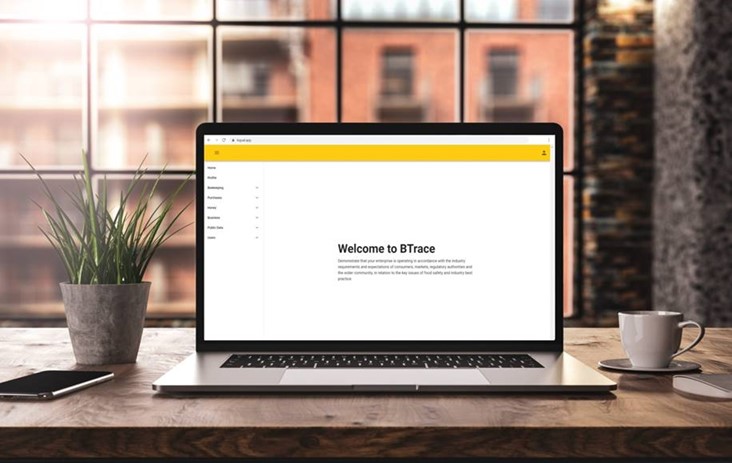
NVMMP nation-wide honeybee virus survey

National Honey Bee Virus | Baseline Project
To help future-proof our nation’s honey and pollination-dependent industries, the National Varroa Mite Management Program (NVMMP) is undertaking a nation-wide honey bee virus survey. This survey is designed to help better understand the viruses that are present across Australian bee populations prior to and following the establishment of Varroa and will contribute to a baseline for endemic bee viruses as well as providing confidence that exotic viruses remain absent from our shores.
To ensure a diverse collection of bees, we need to collect samples from different locations, environments and genetic stock across the country. To meet this need samples are being collected from registered beekeepers in each state and territory.
Samples collected are:
- 100 bees from each of 3 separate hives if you have < than 2,000 hives, or
- 100 bees from each of 6 separate hives if you have > than 2,000 hives.
In Victoria sample jars will be provided by Agriculture Victoria along with ethanol to preserve the samples. All Victorian samples will be coordinated via Agriculture Victoria and sent collectively to a central laboratory for testing. Samples need to be collected by March 2025. If you would like to participate in the project, you can complete an Expression of Interest online.
Varroa testing and Reporting
You will need to check with your individual state requirements, as it is different in nearly all jurisdictions….
The common requirement is that any positive result must be reported in all jurisdictions.
In terms of recommended methods only, alcohol wash or drone uncapping are acceptable.
- At this stage it is only Victoria that recognise drone uncapping as a valid surveillance tool.
- In NSW, if you find a mite through drone uncapping then you must do an alcohol wash to validate mite loadings. This is because there has not been any work done to understand the correlation between drone uncapping numbers and mite loadings in hives.
- SA is silent at this stage about valid methodologies.
- QLD are recommending that beekeepers should do both alcohol washing AND drone brood uncapping. They do not mention sugar roll as an option!
Reporting of negative results is voluntary in all jurisdictions at this stage to the best of our knowledge.
You will find the B-QUAL app useful to keep your records and if unfortunately, you need to report mite sightings the app will notify your state authority automatically. By the biosecurity incident page.
Minimising RISK with Fair Work and WorkSafe Claims against your Business
Every business in the country reports to at least 3 regulatory authorities:
- The ATO.
- Fair Work and
- WorkSafe.
The ATO is the easy one. The Accountant puts it in place and we follow the bouncing ball.
Fairwork and WorkSafe are the hard ones. With contains changes, the requirement for Policy, Process and Proof, it represents SUBSTANTIAL RISK for Business Owners.
If you would not dream of having an Accountant when these two regulatory authorities are the hard one, it is important to GET SUPPORT!!
Getting support
Considering the ever-changing HR and OH&S landscapes, it is important for Business Owners and Operators to stay ahead of the curve and understand the impact of legislative changes upon their business. It is also a statutory obligation for all businesses to have a compliant OH&S system.
It is our intention to both proactively and strategically protect the business owners and operators regarding HR and OH&S. It is important for us to assist our members in having the relevant Policy, Process and Proof to facilitate this.
That is why we work with you 24/7/365. It is also our intention that these systems assist with enhancing the return on investment form your labour fixed costs, which I personally feel more than covers the cost for this compliance.
We are here to take work off your table and provide you with the peace of mind and confidence that you are supported and protected as both a business and an individual.
We provide peace-of-mind and confidence.
Peninsula is “NOT” a Government organisation. We are a proudly independent company helping Business Owners proactively and strategically protect their businesses regarding HR and OH&S.
Let us take the load.
Peninsula will work with you to navigate and manage confusing workplace requirements. We are here to support YOU.
How does it work?
By advising, assisting and supplying robust Policy, Process and Proof, (record keeping systems).
We take a huge administrative component from your business. By customising and providing employment documentation including contracts, employee handbooks, employee letters and correspondence, performance management and disciplinary materials and a variety of other bespoke materials.
By providing 24/7 advice and support in relation to FairWork and Work Safe legislation, compliance, managing employment relations matters and holding difficult conversations. In fact, anything to do with Employment Relations and Work Health and Safety.
Providing access to our Award-Winning Legal Partner for legal representation.
Safeguarding our clients against the financial costs of workplace claims. This is subject to the terms and conditions of the attached PDS.
PLUS our BrightSafe and BrightHR Software Solutions, which can help you get on top of Work Health and Safety compliance, rostering, leave management, expense management and document management.
Additional resources for review
Please take a moment to view this short video clip.
Please also click on the following link for Trustpilot reviews. We have an excellent 4.8 stars out of five across over 1800 reviews.
https://au.trustpilot.com/review/employsure.com.au
With over 31,000 clients just like you, Peninsula is a brand you can trust at a price you can afford.
Get in touch for details and to sign up
Office: Phone: 07 4994 9820
B-QUAL email: admin@bqual.com.au
B-TRACE email: admin@btrace.com.au
Join B-TRACE QA and Food Safety Program:
“Accurate record-keeping is the backbone of a successful food safety program.”
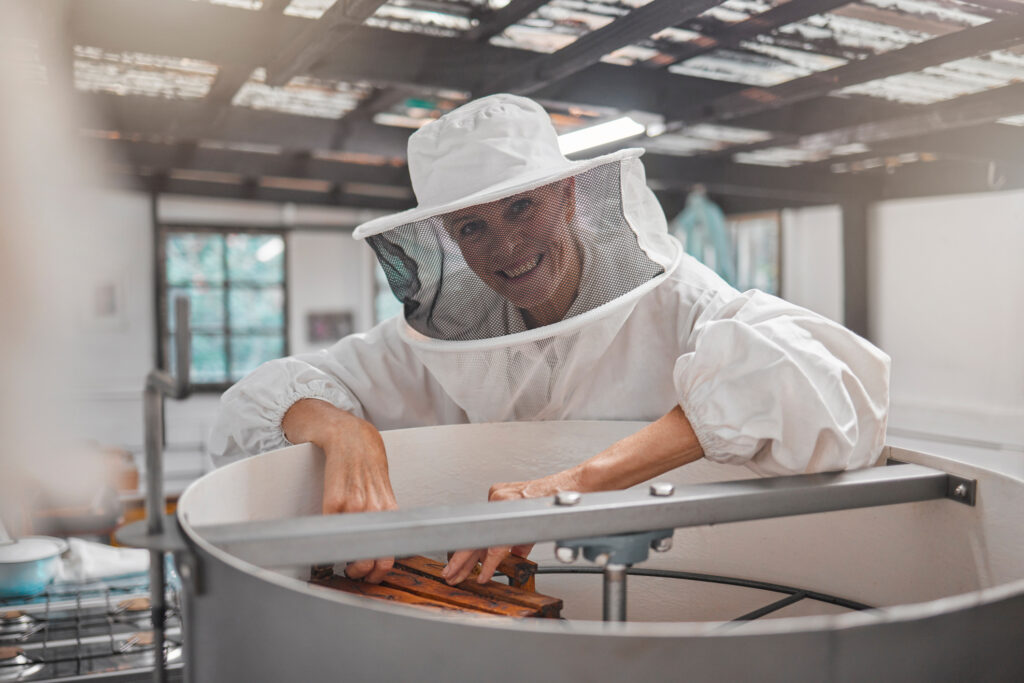
Food safety is crucial for maintaining health standards and ensuring that food doesn’t cause harm to consumers. One vital aspect that everyone involved in food production, from farmers, food manufacturers, and beekeepers must focus on is strict record keeping. Joining the B-TRACE QA and Food Safety Program is one way to help achieve this goal and enhance food safety practices by using the B-TRACE hive management app.
The B-TRACE program encourages small and medium enterprise beekeeping operators to put reliable, systematic practices in place to ensure that all aspects of food safety are handled correctly.
What is B-TRACE?
B-TRACE could stand for “Building Traceability Assurance for Compliance and Excellence.” The program is designed to equip beekeepers with the tools and knowledge they need to ensure food safety from apiary to consumer.
The primary aim of B-TRACE is to enable operators to track and monitor every aspect of honey production. This includes gathering, processing, packaging, and distribution. Keeping accurate records allows businesses to pinpoint any problematic areas before they lead to significant issues.
Why Join B-TRACE?
There are several reasons why being a part of the B-TRACE QA and Food Safety Program is beneficial:
1. Enhanced Safety Standards:
By joining B-TRACE, you align your practices with industry standards that emphasize food safety and quality.
2. Improved Traceability:
With the use of the B-TRACE hive management app, you can easily trace products. This is critical in the event of a food recall.
3. Better Consumer Confidence:
When customers know that a company is dedicated to safety, they are more likely to trust its products.
4. Regulatory Compliance:
Participating in B-TRACE helps ensure that your organization meets all industry standards and requirements for food safety and record keeping.
Statistics show that businesses with strong record-keeping are less likely to experience safety violations. Keeping accurate records allows companies to identify trends and improve their safety protocols effectively. As part of B-TRACE, you will have access to templates and software designed to simplify this process.
Benefits of Effective Record Keeping
1. Liability Protection:
In case of illness reports or food recalls, having excellent records can protect your business legally.
2. Operational Efficiency:
When everything is documented, it becomes easier and quicker to find crucial information, thereby allowing for better decision-making.
3. Employee Training:
Records provide a history of incidents and safety measures. They are valuable tools for training employees on food safety practices.
4. Quality Control:
Systematic record keeping can help identify areas for quality improvement.
Make the move now contact BTRACE via www.btrace.com.au or phone 07 4994 9820
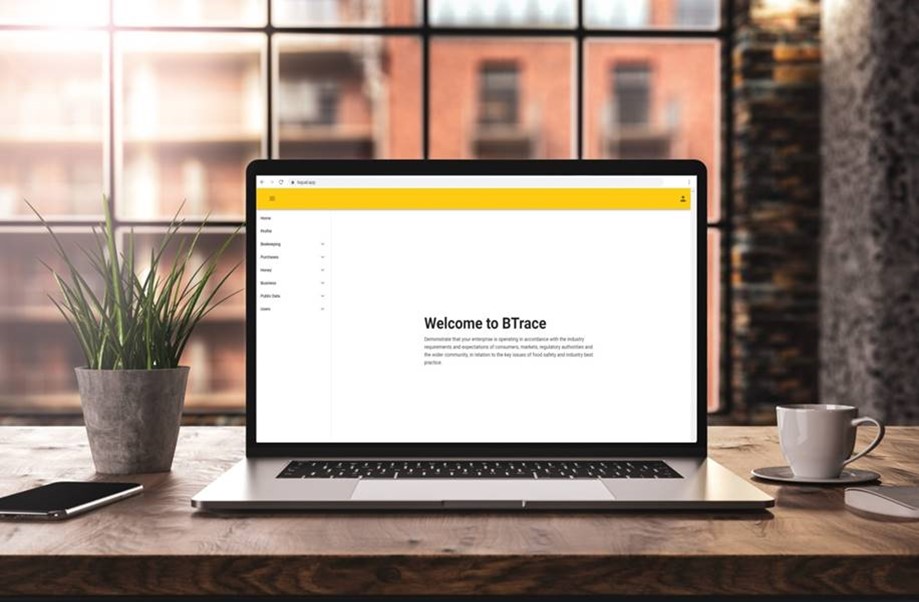
Notices
B-TRACE Audits.
If you have not yet submitted your online audit for the current year, please do so to keep your accreditation up to date.
The online audit form is available in the member section of the B-TRACE website or alternatively, contact admin@btrace.com.au and we will email one to you.
Once completed email back to the office.
Allow 5-7 days for audit review and issue of the accreditation certificate.
B-QUAL and/or B-TRACE logos.
Pre-printed logo labels are available from the office.
B-TRACE 30mm lid labels full colour
$26.50/1000 (plus GST and postage)
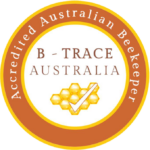
B-QUAL 12mm jar labels full colour
$ 22.50/1000 (plus GST and postage)
If you are printing your own labels high Res’ artwork is available free of charge.
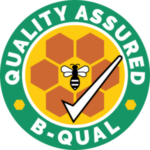
B-QUAL Self Assessments.
If you have purchased your Approved Supplier Manual but have not yet submitted the self-assessments, you cannot proceed with further certification until self-assessments are submitted.
The assessments are in the first section of the manual. Complete both assessments and send them to admin@bqual.com.au for review and certificate issue.
If you have any queries about assessments contact admin@bqual.com.au for further assistance.
Members section of websites.
To access the member section of the B-QUAL and B-TRACE websites you need to create an account.
To do this email the office requesting an account for either website.
Once the account is set you will receive an email requesting to log in and change the initial password. Remember that you must have a separate account for the members section, your app or other passwords will not work.
Our Sponsors:
We acknowledge and thank Steritech and the CMV Group for their valuable ongoing support of B-QUAL and B-TRACE which assists us to continue to participate in research and industry development works that we see as important to our industry.

Please support those who support us.
Contact details
General enquiries for B-QUAL & B-TRACE:
Office: All enquiries. Phone: 07 4994 9820
B-QUAL email: admin@bqual.com.au
B-TRACE email: admin@btrace.com.au
Newsletter disclaimer:
Material and information published in the B-QUAL newsletter are produced for general information only. Although published in good faith, the company and/or any officer of the company will not be liable for any loss suffered by any person for action taken on the basis of such information.
